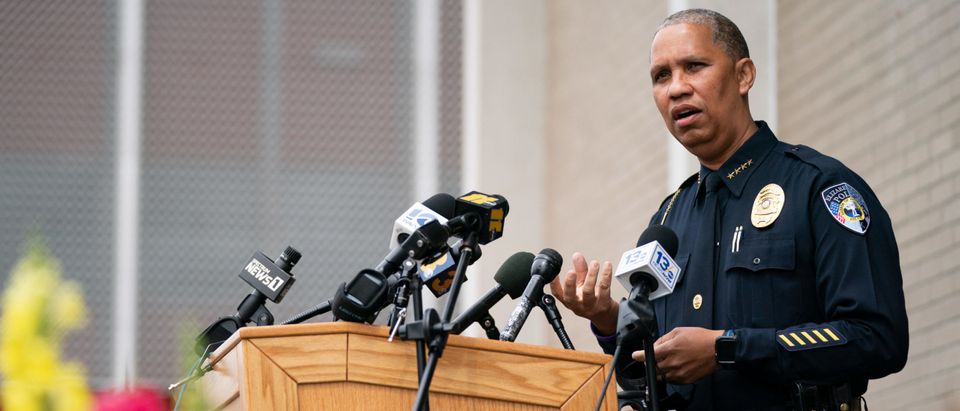Police departments in Philadelphia are struggling to make ends meet when it comes to staffing, the Philadelphia Inquirer reported Thursday.
Since the beginning of the year, 79 Philadelphia police officers have been accepted into the Deferred Retirement Option program, which means that they intend to retire in the next four years, according to The Philidelphia Inquirer. During the same time period last year, 13 officers had enrolled in the program.
“It’s the perfect storm. We are anticipating that the department is going to be understaffed by several hundred members because hundreds of guys are either retiring or taking other jobs and leaving the department,” said Mike Neilon, spokesperson for the Philadelphia Fraternal Order of Police.
The Philadelphia Police Department is budgeted to have 6,380 officers but currently has 6,112, leaving 268 vacancies.
Philidelphia police department is one of many across the country that has experienced shortages due to early retirement and low recruitment numbers.
Baltimore City’s Fraternal Order of Police Lodge claimed that the commissioner would need to close two police districts as the city had fallen below 700 sworn patrol members.
Word is Police Commissioner Harrison will need to close 2 police districts. As of today, Patrol has fallen below 700 sworn officers! #500copsshort #cityincrisis @BaltimorePolice @GLFOP
— Baltimore City FOP (@FOP3) April 19, 2021
According to Fox Baltimore, the Union leader followed up by saying, “Our Patrol numbers are now below 700 officers which is about 300-400 below what is needed. This creates huge safety issues for our officers and for the citizens of Baltimore.”
The police commissioner of Baltimore replied stating that these claims were “absolutely false.”
“There has not been ever a conversation with anyone with me about closing a police station. We are not 500 officers short. We have 500 fewer officers than we had 10 years ago when we were budgeted for 500 more officers,” he said.
81 officers have fled @BaltimorePolice this year, outpacing last year. Pay, working conditions, and the anti-policing climate are the primary reasons. BPD leadership must begin to treat our officers as the professionals they are! #500copsshort #cityincrisis @GLFOP @MayorBMScott
— Baltimore City FOP (@FOP3) April 20, 2021
The superintendent of the New Jersey State Police said that within one year state police applications have dropped from between 15,000 and 20,000 to just 2,130 this year, NJ.com reported.
“Every action has a reaction. When you vilify every police officer for every bad police officer’s decision, [people] don’t want to take this job anymore,” the president of the New Jersey State Policemen’s Benevolent Association, told The Philadelphia Inquirer. (RELATED: Cities With BLM Protests Had Fewer Police Shootings, Dramatically More Deaths)
Dr. Oscar Odom, a former New York detective, told Fox & Friends, “If you’re proactive and are second-guessed on your decision, then, therefore, you would wind up losing your job, your pension, and possibly incarceration. So why would you want to risk that? Why would you want to join something where people hate you and go out there and put your lives on the line?”
“There’s been a pretty heavy dialogue of ‘law enforcement is bad,” police chief in Bloomington, Indiana, said to local affiliate Heart of Illinois ABC. “We’ve spent a lot of time encouraging guys to get back to what their original calling was when they came in … and that was and is to help people.”
In Illinois, the Peoria County Sherriff’s Office is attempting to combat the problem by offering a $10,000 sign-on bonus for patrol officers and a $5,000 sign-on bonus for correctional officers, according to ABC.
“I think the trend started three, four, five years ago … where we started seeing the decrease in applicants, and the increase in people retiring,” said Peoria Police Chief Doug Theobald to ABC.
Chief Theobald blamed the shortage on officers retiring as soon as they are eligible instead of working for a few additional years and warned that this may lead to longer response times, more officer burnout, and less community engagement.


